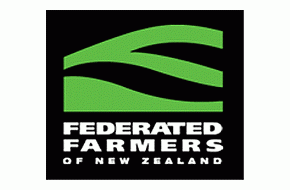
Content supplied by Federated Farmers
Federated Farmers has started consultation among its membership covering reform of New Zealand’s $6 billion Red Meat industry.
The red-meat industry is currently worth around 35 annual Avatar movies to the New Zealand economy.
“Given Avatar Director James Cameron is also a Wairarapa farmer, reform of New Zealand’s red meat industry represents our economic blockbuster if we can pull it off,” says Jeanette Maxwell, Federated Farmers Meat & Fibre spokesperson.
“From the number of calls I have already received, I know both the media and our meat processors are very keen to see a copy of our paper.
“We will be publicly releasing our Meat Options Paper in the New Year, but first, we want our members to have a decent chance to talk things over.
“We are asking them to give us their feedback so that Federated Farmers Meat & Fibre can write its strategy. Everything we do will be informed by what our members want.
“Our options paper advances three broad options but the solutions within them are more like a ‘pick and mix’.
“Arguably, the Processor Focused options will generate much discussion.
“There is a push by some in the industry to merge the cooperatives, something that’s much easier said than done. If the thinking is ‘just copy Fonterra’ then it will not succeed. To work, any merger needs a reassessment of the entire industry but especially its capital structures.
“We also look at Tradable Processing Rights which is similar in concept to fisheries quota management. It would need legislation and there are fishhooks, but if they can be worked through, it could help to reduce overcapacity in the industry.
“We also raise the option of Toll Processing which separates out processing and marketing.
“Federated Farmers is also advancing a truly innovative concept that’s never been discussed before in New Zealand. It is called total value transparency.
“Again it would require legislation but Federated Farmers is taken by the Uruguayan model, which is widely regarded as having the best meat information systems in the world.
“We feel total value transparency merits discussion as it could drive a material change in behaviours at the marketing end. It is one means to improve coordination, collaboration and in-market behaviour while generating value and demonstrating where that value is being added.
“Our Behaviour Focused option reflects that the dairy industry was static until the industry, from the grassroots up, decisively reshaped it for the better.
“It is about behavioural change to shift the focus from procurement to what the market wants. This involves a matching of suppliers with companies that share similar philosophies.
“We know from our research that there is a mutual cultural and business alignment to be built upon here.
“We also explore the positive role stock agents could play, a very different outlook on them than what others have reached.
“The third section discusses Marketing Focused options. We look at things that are being discussed in the industry right now, from the WTO-unfriendly single desk model to more realistic in-market collaboration by our exporters.
“Being marketing focussed could include multiple marketing companies involving strong producer and customer/consumer relationships. This option is dependent upon toll processing indicating how interrelated our options are.
“A twist on market collaboration is for an ANZAC approach, where Australia and New Zealand unite to achieve greater scale while improving research investment and market development.
“Going larger still, could see an alignment between the Northern and Southern hemispheres to match seasonality of supply. This could help to keep red meat products on the shelves in the face of competing proteins.
“While not an option, I need to mention how water storage and irrigation could be transformational. The current debate is too dairy-centric and if we want a globally competitive red-meat industry then we need reliable water to reshape our farm businesses.
“It is now up to farmers and what they want our industry to look like in five, 10 and 20 years time? If we genuinely believe it is time for a change, then change will happen,” Mrs Maxwell concluded.
We welcome your comments below. If you are not already registered, please register to comment
Remember we welcome robust, respectful and insightful debate. We don't welcome abusive or defamatory comments and will de-register those repeatedly making such comments. Our current comment policy is here.